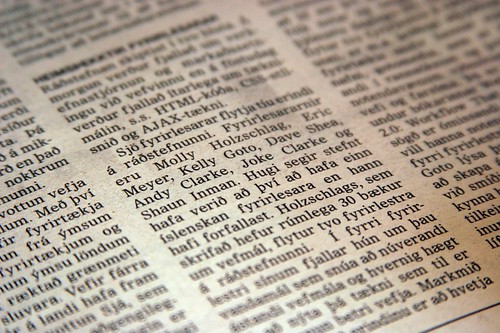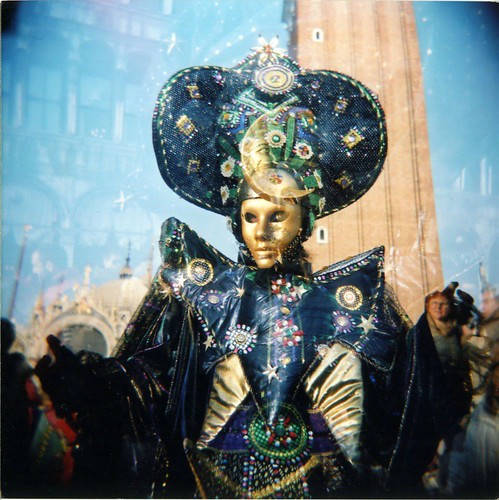 photo by LEOtm
photo by LEOtmEven this week my post deals with one important current news: the elections in the USA and in Italy. I watched some videos and I read some articles in the websites that I had already visited in the past weeks and found particularly reliable: the online newspapers The New York Times, BBC News and La Repubblica, and the official websites of the candidates of the left wing: Barack Obama, Hillary Clinton and Walter Veltroni.
As far as the Italian situation is concerned, I noticed that in these days both La Repubblica and the official website of the PD dealt with the problem of Southern Italy. In all Veltroni’s public speeches of the last few days in the southern regions of Italy, he repeated that one of the main points of his political program is to solve the major problem of Southern Italy, that is, poverty, the inadequacy of infrastructures and the Mafia. He asserted that if he win, he will purpose a draft bill to the Council of Ministers containing some measures such as: the development of transport (especially the railway); the improvement of the communication network that will allow the use of broadband to the whole Southern Italy; the increase and refinement of educational and professional offerings for young people; incentives and special measures for the development of small enterprises; the fight against the Mafia. According to Veltroni, solving these problems means creating the necessary conditions for the South to develop and contribute to the national growth.
Another article of La Repubblica that caught my attention concerns a study research of the “Osservatorio Universitario Mediamonitor”, which showed a certain trend among Italians voters. The research displays that there is a great number of people that don’t know who they will vote and IF they will vote. A high percentage of Italian voters isn’t interested in politics and doesn’t actively participate to political manifestations. Many voters are confused and don’t feel represented by the candidates; they are disillusioned about the political situation in Italy and don’t trust in a positive change after the elections. The alarming fact is that this percentage is increased compared to the last political elections.
As far as the American elections are concerned, I noticed that news mainly deals with the race between the two Democrats Barack Obama and Hillary Clinton and concerns several aspects of their campaign. The newspapers agree that this race is becoming more closer and bitter than expected.
The New York Times and the BBC News reported the fact that Clinton acknowledged her mistake when she affirmed that she came under sniper fire on a trip to Bosnia 1996; she attempted to justify herself saying that every human being makes mistakes and apologized for her behaviour. She then tried to change the subject and criticised Obama since in last weeks he didn’t leave his Church and disown his former pastor Rev. J. Wright, after his inflammatory sermon.
The newspapers then focussed on the fact that Senator Patrick J. Leahy of Vermont and other Obama’s supporters suggested Clinton to quit the race, because by continuing her campaign she would help the Republican party. They said that Obama leaded in delegates and total votes and the uphill race between the two candidates would hurt the Democratic party’s chances to win the elections in November. Mrs. Clinton, however, firmly refused to quit the race, unless she loses the race in Pennsylvania on April 22; even Obama supported her choice and declared that she should continue her campaign as long as she is willing or able.
Another matter of discussion is the ‘transparency’ of the candidates. Obama recently released copies of his tax returns covering the last seven years and his aides invited Clinton to do the same before the elections in Pennsylvania. Clinton replied that she would provide as soon as possible. The aides of one candidate constantly tried to disrepute the clearness of the other candidate’s personal finances in order to get votes and public approval.
Another clear signal of fierce competition between the two candidates is how they try to gain public approval. In their official websites, for example, each candidate tries to underline that important public figures support them and their ideas. In Clinton’s website there is a link to a video showing Rep. John Murtha praising her qualities and ideas, while in Obama’s website there is an article dealing with the fact that Bob Casey, Senator of Pennsylvania, endorsed him to be the next president.
Veronica










